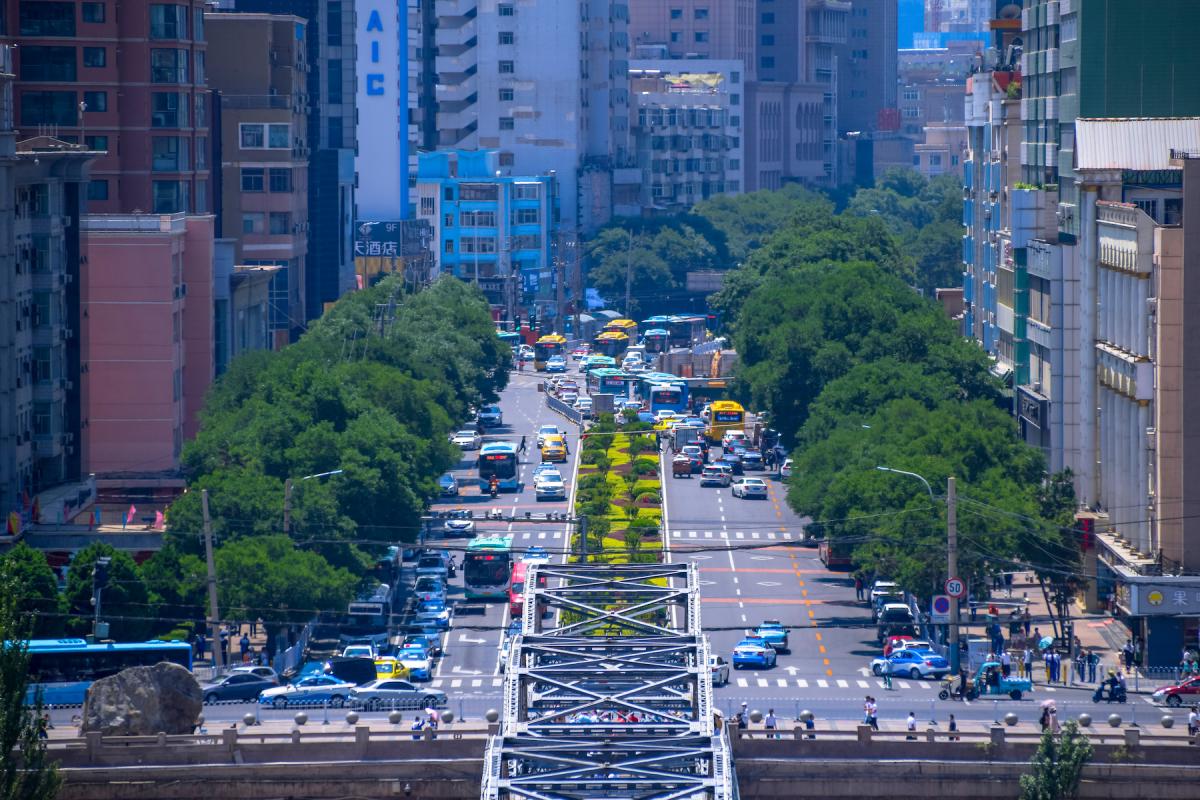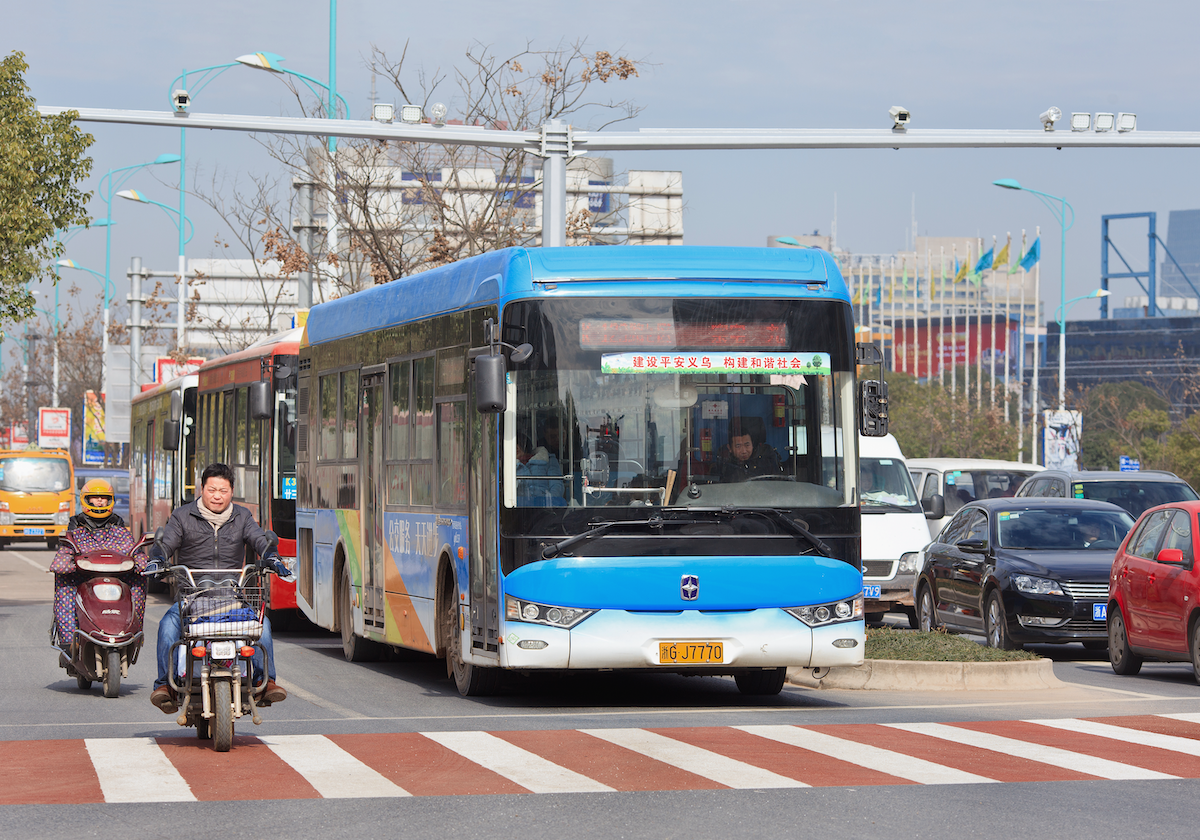Local governments are also out of funds, and unions are too burdened with pandemic prevention measures to represent workers’ interests.
Bus drivers and other employees of a state-owned transportation group in north-western China had gone without wages from June to September 2022 and were urged to take out personal loans to cover this problem in the meantime.
The transport group’s notice to employees circulated online in early September, stating that “a customised loan” with joint and several liability guarantees from the company will be offered, and the company will assume the monthly interest payments and principal repayment at maturity.

Photograph: NGCHIYUI / Shutterstock.com
The company is already in debt to the tune of 390 million yuan, with a debt ratio of 72 percent, and cannot apply for additional loans to make the wage payments itself.
According to Tianmu News, employees and their family members voiced concerns about bearing this financial risk in their own names, with one person saying:
If the enterprise itself cannot handle the loan for various reasons, there is a risk of not being able to repay the loan. Who else will take over?
Representatives of the Lanzhou Public Transportation Group, which employs over 8,000 workers, have said that the city of Lanzhou, capital of the northwest province of Gansu, has for a long time kept bus fares low, at one yuan per ride, and is facing economic difficulties.
Role of the union when workers aren’t being paid
Many smaller cities in China are in a similar financial situation as Lanzhou. CLB earlier reported on wage arrears of bus drivers in a number of locations early in the pandemic as local budgets were tightened and commuters’ habits changed. But this problem has only exacerbated with local spending on pandemic measures and the unstable property market.
CLB’s mapping data reveals that bus drivers are calling for help with wage arrears in multiple locations this year alone, including in Hebei, Shandong, and Yunnan provinces, and in Tianjin and Beijing. Bus drivers went on strike in Henan province in August of this year.

Photograph: TonyV3112 / Shutterstock.com
Workers have enough difficulty succeeding in labour dispute arbitration and civil proceedings to win their fundamental rights including wages owed. How much more difficulty will they have in a potential claim to get a state-owned enterprise to pay personal loans in the workers’ own names, on the basis of a non-binding notice guaranteeing the loan?
To deal with financial difficulties, some cities have suspended certain bus routes or requested additional funding from local government departments. Although it is not the union’s role to solve the financial crisis, the union should negotiate with employers and local governments on workable solutions that protect workers’ rights and interests.
However, on 7 September, the very day before the loan notice was issued in Lanzhou, a party official and chair of the provincial trade union, Wu Mingming, went on a site visit at the Lanzhou Public Transportation Group. The Gansu Federation of Trade Unions said that it spoke with a range of employees on topics that included payment of wages, annual leave, and assistance to employees in need.
However, the union report mainly focused on praising the transport group for “making great contributions and playing an important role in promoting Lanzhou's urban economic and social development.” Chairman Wu’s visit was also an opportunity for political sloganeering about maintaining a loyal, harmonious and stable workforce.
CLB calls the municipal union to seek accountability
When CLB called the Lanzhou municipal union, the official from the general office who answered the phone reported that most of the staff were away:
The pandemic situation in Lanzhou is very serious, and government officials from all the departments here are going out to the community to fight the virus as volunteers.
Although the union is not technically a government body, the union typically follows party and state agendas outside the union’s mandate, such as assisting local governments with poverty alleviation campaigns and, more recently, pandemic prevention measures.
CLB suggested that during the pandemic, rather than donning white protective gear and patrolling neighbourhoods, union officials should represent the rights and interests of workers affected by the pandemic and negotiate with employers.
CLB contacted another official from the municipal union, this time from the department of labour relations, and she told us that it was inconvenient to answer our questions about whether transport workers were represented in any negotiations about their unpaid salary and the loan.
There is already an official explanation for this… Our propaganda department can tell you more. If all the departments are talking about this on their own, it will create chaos. As a socialist country, we follow this socialist system.
Although CLB can only speculate on any connection, the transportation company announced that its vice president was dismissed in October.
CLB speaks with bus company employees about their wages and union visits
CLB then called the state-owned transportation company, reaching staff in the general office and those who work at bus terminals. All of them confirmed that the personal loan offer had been halted and that at least some of the salaries owed had been paid.
The staff member at the general office claimed that the loan offer “was only a test” and that he didn’t know if all employees had received their full salaries. When CLB asked whether, as an example, his own salary had been paid, he responded, “In my household, my wife manages our finances, so I don’t know how much I was paid. I don’t care about it either.”
The employees working at the bus terminals were more open to speaking with us. One woman told us that she didn’t know how much of her wages were paid back, since the funds were directly deposited into her account without any receipt.
We also asked her whether, when the provincial federation of trade unions visited, ordinary workers were able to speak freely about their working conditions and wage arrears. “I’ve never seen it,” she said. She said that she knew about the union visit but was not invited to attend, and that the union conducts visits about once per month.
“I have seen the manager, deputy manager and general secretary of our branch company, but I don’t know which of them is the union chairman,” she said, revealing that the enterprise union is likely led by a member of top management.
In that case, it would be especially difficult for workers to voice any genuine concerns to the union.
Further CLB reading:
